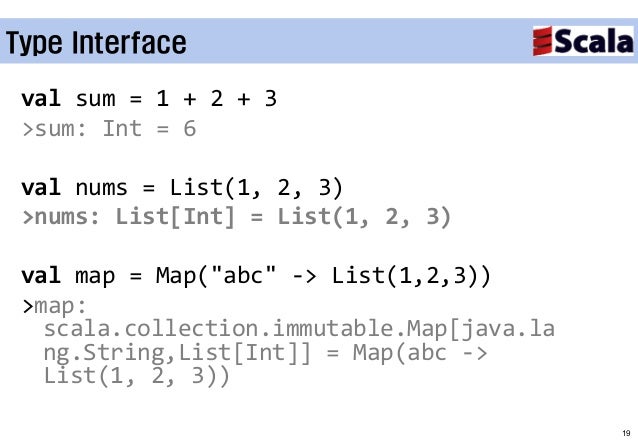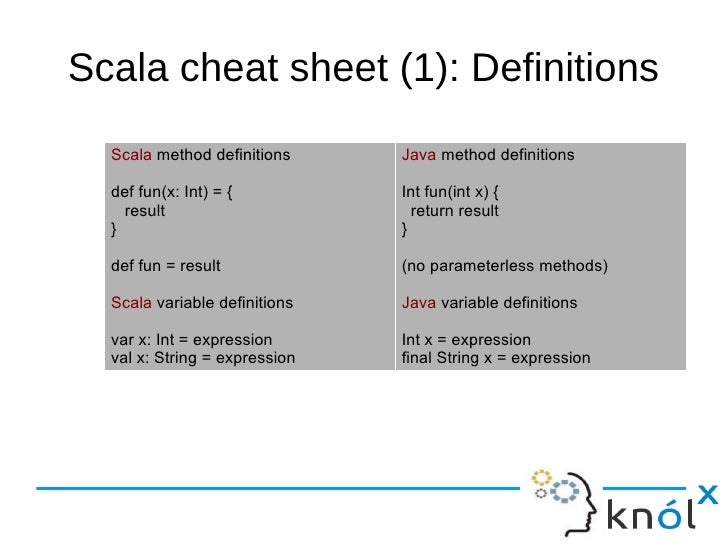
We wanted to teach you the usage of the enumerations in the Scala programming language in Ubuntu 20.04 with the help of this article. The image shown below displays the output of this Scala script: However, if this value will not be encountered till the last iteration of our loop, then, the “case _” will be executed. As soon as this value will be encountered while iterating through the loop, a message will be printed on the terminal.

Then, we have an “if” statement inside which we wanted to compare the “x” variable with a value of our enumeration i.e. Within this “foreach” loop, we have a “case” statement that is applied on a variable “x”. However, this time within our “main()” function, we have first used the “foreach” loop that will iterate over all the values of our enumeration. The Scala script for serving this purpose is shown in the following image:Īgain, in this example, we have used the same enumeration that we have used in the examples above. we will now be using the Scala enumerations with the loops and conditional statements. Now, we will take the usage of the Scala enumerations a step further i.e. 0 is shown in the image below:Įxample # 4: Using the Scala Enumeration with Loops and Conditional Statements The ID of the first value of our enumeration i.e. Then, within our “main()” function, we have printed all the values of our enumeration on the terminal by using the “$” notation for printing the ID of the first value of our enumeration on the terminal. We have created three different variables of “val” type named “one”, “two”, and “three” and have assigned to it the names of different defence forces. Now, this object will be used to assigned values to our enumeration. We have declared this object using the class name with the “type” keyword and named it as “Value”. Then, we wanted to create an object for holding the values of the enumeration class. In this program, we have declared a class named “Enum” and have extended it from the Scala “Enumeration” class by using the “extends” keyword.

The following Scala script will depict this method: This example will demonstrate the method of printing the values of a Scala enumeration on the terminal. To use the enumerations in the Scala programming language in Ubuntu 20.04, you can take help from the following four examples: Example # 1: Printing the Values of a Scala Enumeration on the Terminal Using the Enumerations in the Scala Programming Language: This article will throw light on the usage of the enumerations in the Scala programming language in Ubuntu 20.04. If you wish to create an enumeration within your Scala script, then you will have to extend your desired class from the Enumeration class in Scala. To support the concept of enumerations in the Scala programming language, there is a built-in Enumeration class. This group consists of similar types of values.
SCALA ENUM MANUAL
Can be 'fixed' by adding custom implementations to base class Counter (a bit of a contridiction, since it's manual coding.).An enumeration in Scala is defined as a group of named constants.
SCALA ENUM CODE
By having base trait sealed, any code doing pattern matching is typed-checked to ensure exhaustive cases are covered. Can then do arbitrarily complex pattern matching using all the different case object parameters for each different value. Can do arbirtrarily complex OO modelling for the trait Counter and for each Value.



 0 kommentar(er)
0 kommentar(er)
